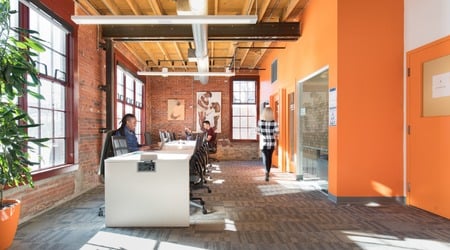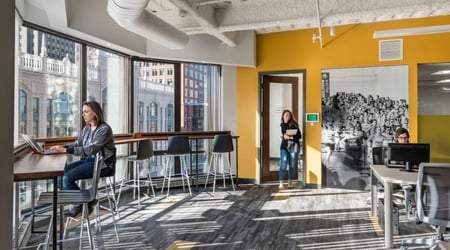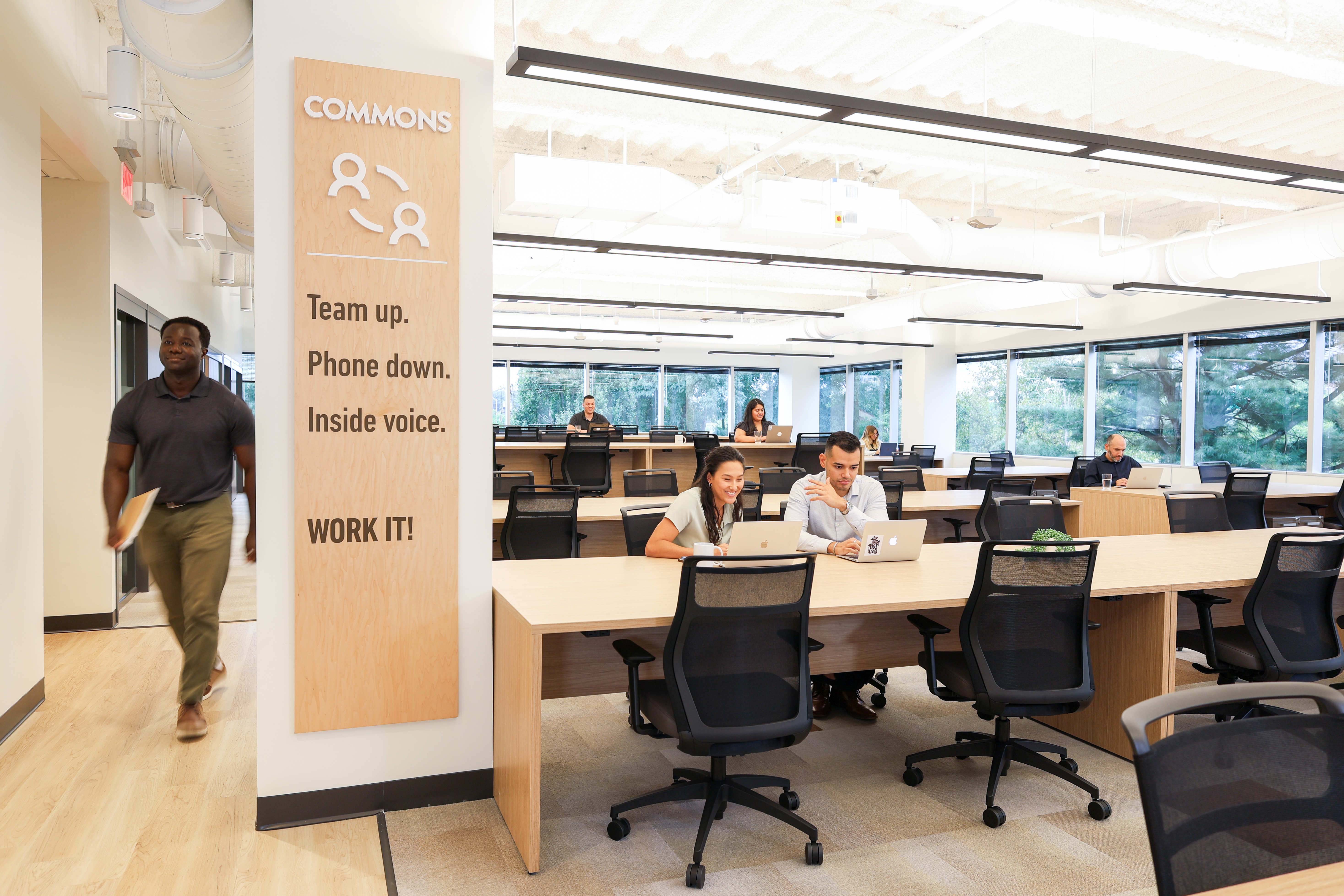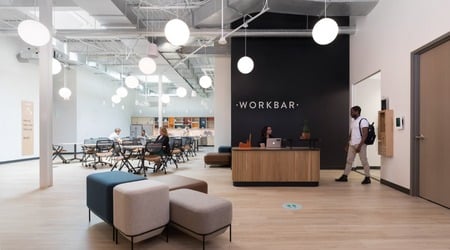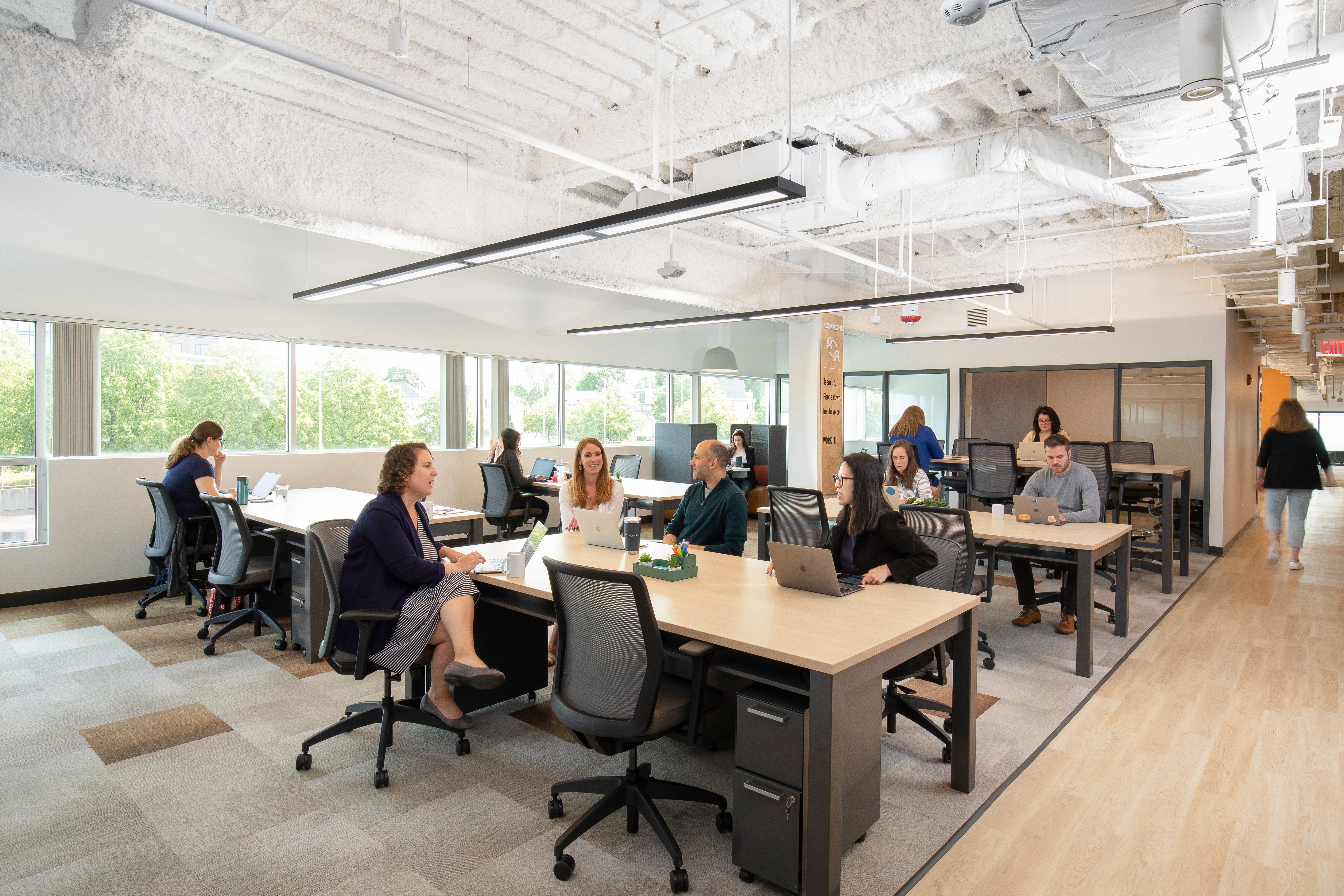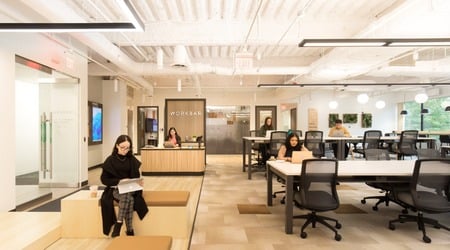The Rise of Remote Work
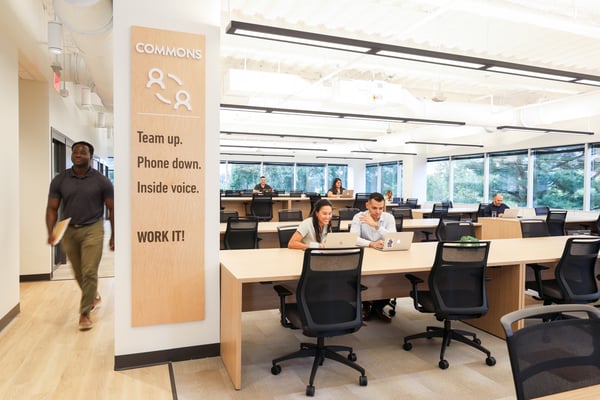
What is coworking?
Coworking is like sharing an office with a bunch of strangers that eventually become your friends. It's where freelancers, remote workers, and entrepreneurs come together to work, collaborate, and occasionally fight over who finished the last coffee pod.
Think of it as a magical land where Wi-Fi is strong, and the community is even stronger.
In the world of coworking, your desk may not have a nameplate, but it does come with a built-in cheering squad for your "lightbulb" moments. Need a break? Don't worry; head to the cafe for some sparkling water from the Bevi or get some quiet time in The Study.
Coworking is where work meets life, and you can find inspiration, collaboration, and the occasional hunt for the mysteriously disappearing stapler. Welcome to the wild world of coworking, where we take our work seriously, but ourselves? Not so much.

Coworking at Workbar
At Workbar, we define coworking as more than just shared office space. It's a dynamic community where innovation, collaboration, and productivity come together in perfect harmony.
Coworking, to us, is about breaking free from the traditional office model. It's a place where individuals and teams of all sizes can access flexible work environments that inspire creativity and foster connections.
We believe in the power of choice. Coworking means having the freedom to choose your workspace - whether it's a quiet corner to dive deep into your work or a vibrant common area to network with fellow professionals.
At Workbar, we curate spaces that are designed for productivity, with top-notch amenities and services to support your needs. But it's not just about the physical space; it's about the people. Coworking is an opportunity to surround yourself with diverse, like-minded professionals who share your passion for growth and success.
Does it sound like something you want to try? Good! Because we saved you a seat.
What is a 3rd Place at work?
The "third place" is like the Goldilocks of workspaces, where you're searching for that "just right" spot to get things done. It's not your home (too many distractions, too comfy), and it's not your traditional office (too formal, too cubicle-y). The third place is where you find your perfect balance of work and life.
Think coffee shops, libraries, co-working spaces, or even that quirky park bench with surprisingly good Wi-Fi. It's where you can sip your latte, tap away on your laptop, and feel like you're a part of something bigger, whether it's the hum of conversation or the rustle of leaves in the breeze.
In the world of work, the "third place" is your secret oasis, where inspiration strikes, connections form, and you can finally have that productive meeting without worrying about the office photocopier conspiring against you. It's where work gets clever and clever gets work done.
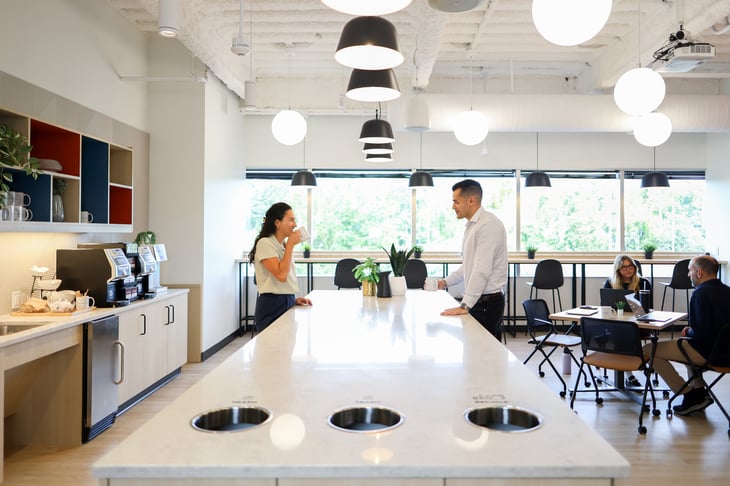
Make the most of your meeting time
Enjoy endless amenities in any Workbar location.
Intentional space,
intentionally placed.
Check out our digs at 12 locations in Boston’s city and suburbs.
Questions? Contact us
Real-live human support at the ready. Chat with us online or visit our Contact page to submit an online inquiry.
